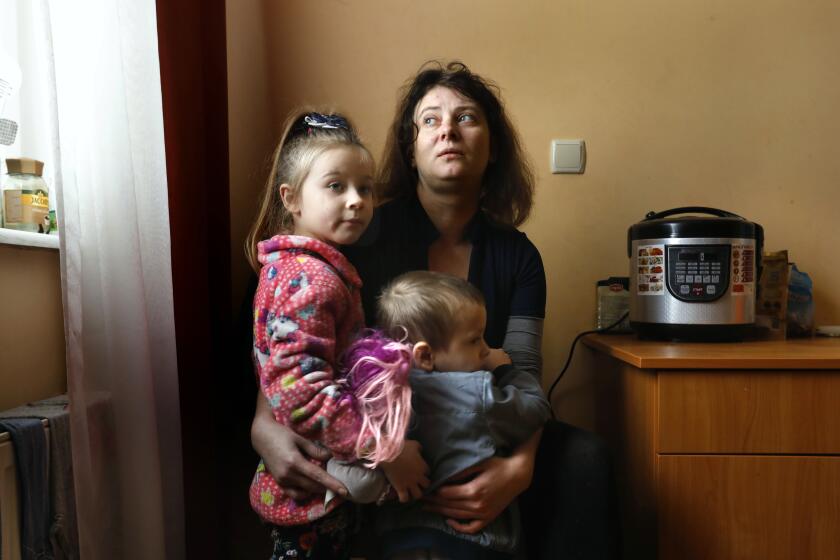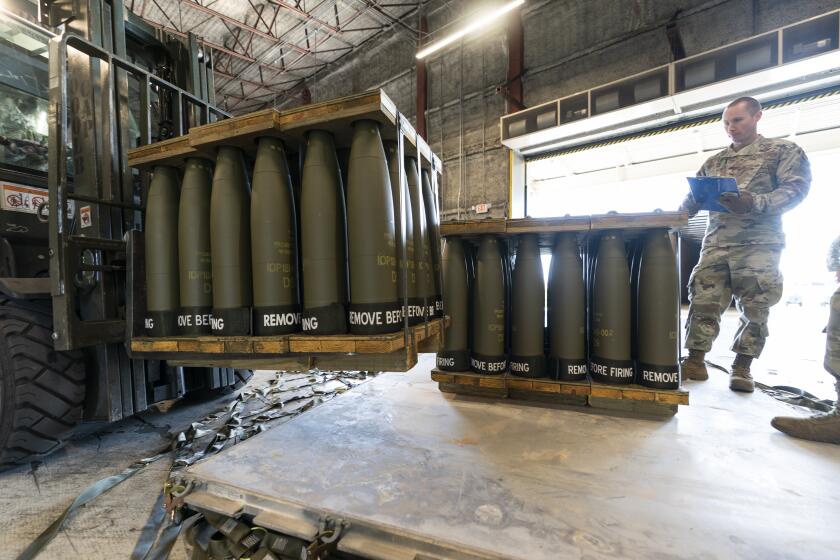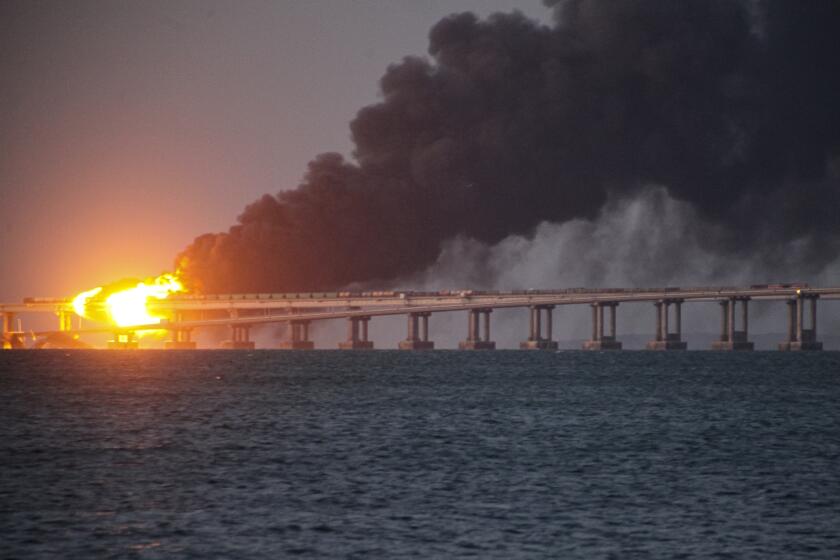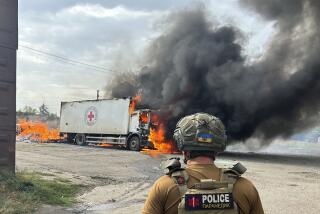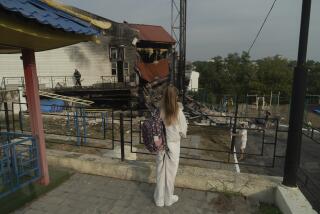Ukraine braces for more attacks as West eyes humanitarian aid for winter survival
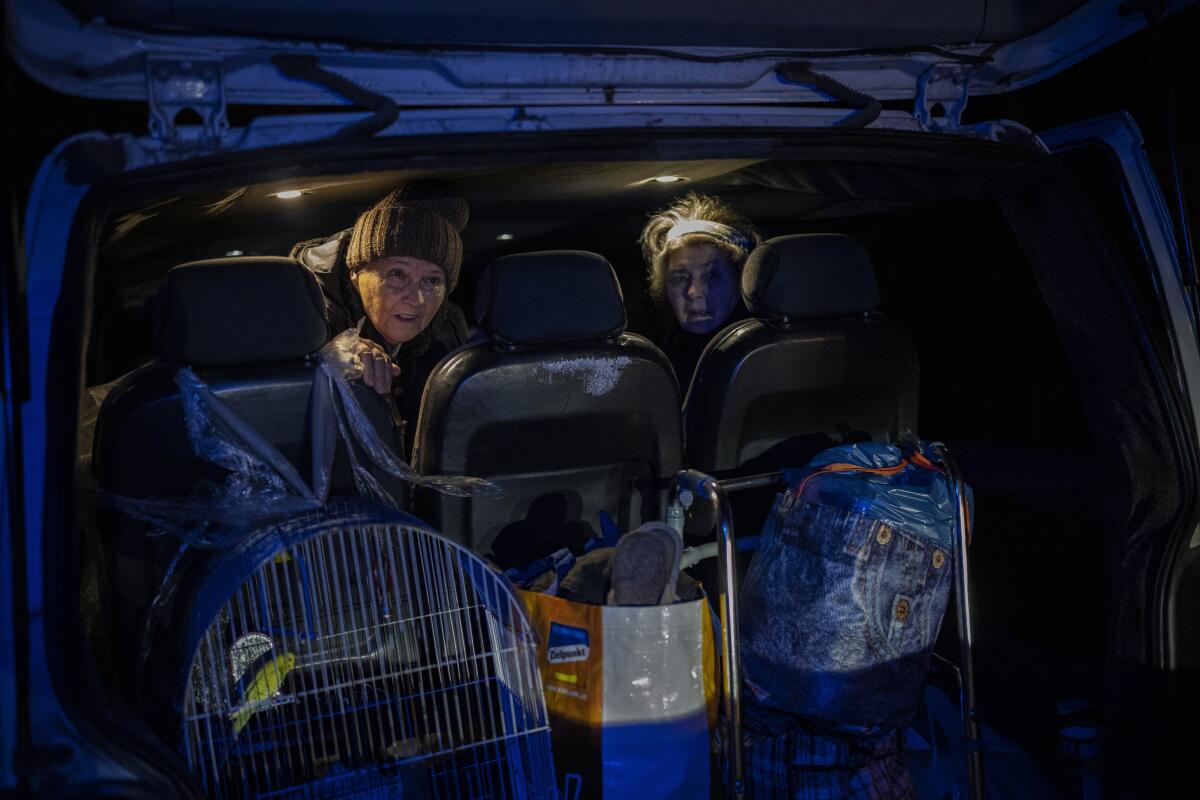
KYIV, Ukraine — Ukraine prepared for more Russian strikes Monday and warned of the possibility of a new round of evacuations from the capital during a relative lull from the airstrikes on energy facilities and other key infrastructure in recent weeks.
In the West, meanwhile, preparations were stepped up to boost humanitarian aid to Ukraine so that the population can enjoy some warmth during their coldest months of need and keep the resolve of the nation as high as possible.
Ukrainian President Volodymyr Zelensky warned that Russian troops “are preparing new strikes and as long as they have missiles, they won’t stop.
“The upcoming week can be as hard as the one that passed,” he said.
NATO Secretary-General Jens Stoltenberg said Russian President Vladimir Putin was intent on using upcoming frost, snow and ice to his forces’ advantage, not only on the battleground but against Ukrainian civilians too.
“President Putin is now trying to use the winter as a weapon of war against Ukraine, and this is horrific and we need to be prepared for more attacks,” Stoltenberg said on the eve of a two-day meeting of NATO foreign ministers in Bucharest, Romania. “That’s the reason why NATO’s allies have stepped up their support to Ukraine.”
Norwegian Foreign Minister Anniken Huitfeldt visited the capital, Kyiv, on Monday and said it was “a desperate situation that we are now witnessing. Many here face a grim choice: to flee or to freeze. The Russian warfare is unparalleled cynicism.”
Kyiv Mayor Vitali Klitschko said that some of the city’s 3 million people might have to be evacuated to places where essential services would be less prone to shutdowns caused by missile attacks.
Areas of Ukraine once considered places of refuge are staggering under the weight of caring for displaced people and experiencing their own hardships.
Russia has pounded energy facilities around Kyiv with a barrage of missile strikes, resulting in power outages and halts in water supplies to the city.
With temperatures hovering around freezing and expected to dip as low as 12 degrees in little more than a week, international aid is increasingly focused on items like generators and autotransformers to ensure that blackouts affecting everything from kitchens to operating rooms are as limited and short as possible.
Putin “continues trying to make Ukraine a black hole — no light, no electricity, no heating to put the Ukrainians into the darkness and the cold,” said European Union foreign policy chief Josep Borrell. “So we have to continue our support providing more material for the Ukrainians to face the winter without electricity.”
Borrell was leading a meeting of EU ministers that would specifically “look at the Ukrainian war from the point of view of a humanitarian crisis.”
The United States is sending an additional $400 million in ammunition and generators to Ukraine, the White House announced Wednesday.
Ukraine’s energy provider, Ukrenergo, said Monday that it is still short 27% of output after Russian strikes on energy infrastructure. “The scale and complexity of the damage are high, and repair works have continued around the clock,” the company said in a statement.
Power supply was restored to 17% of residents in the southern city of Kherson, which Ukraine recaptured earlier this month. The Russians have continued pounding the city with artillery barrages.
Zelensky’s office said Monday that at least four civilians were killed and 11 others wounded in the latest Russian attacks. It said intense fighting was continuing along the front line in the east, with the Russians shelling Bakhmut and Toretsk at the epicenter of the fighting.
Ukraine sees Crimea, the strategic peninsula illegally annexed by Russia nearly nine years ago, as potentially within its grasp.
“People are sheltering in the basements, many of which are filled by water,” said Donetsk Gov. Pavlo Kyrylenko. “They have been living in catastrophic conditions without power or heating.”
Also on Monday, Russia denied that it had plans to withdraw from the Zaporizhzhia nuclear power plant in southern Ukraine — Europe’s largest — which it has occupied since the early days of the war.
Kremlin spokesman Dmitry Peskov said in a call with reporters that it was pointless to look for signs of a pullback from the plant “when there are none and there can’t be.”
Peskov’s comments were in response to Ukrainian claims that the Russian forces were bound to retreat from the plant as they face a continuing Ukrainian counteroffensive.
The plant has been shut down following repeated shelling, for which Russia and Ukraine have traded blame. The United Nations nuclear watchdog and international leaders have urged Russia to demilitarize the plant to avoid a nuclear disaster, but Moscow has rejected the demands, arguing that it needs to maintain troops there to ensure its safety.
More to Read
Sign up for Essential California
The most important California stories and recommendations in your inbox every morning.
You may occasionally receive promotional content from the Los Angeles Times.
